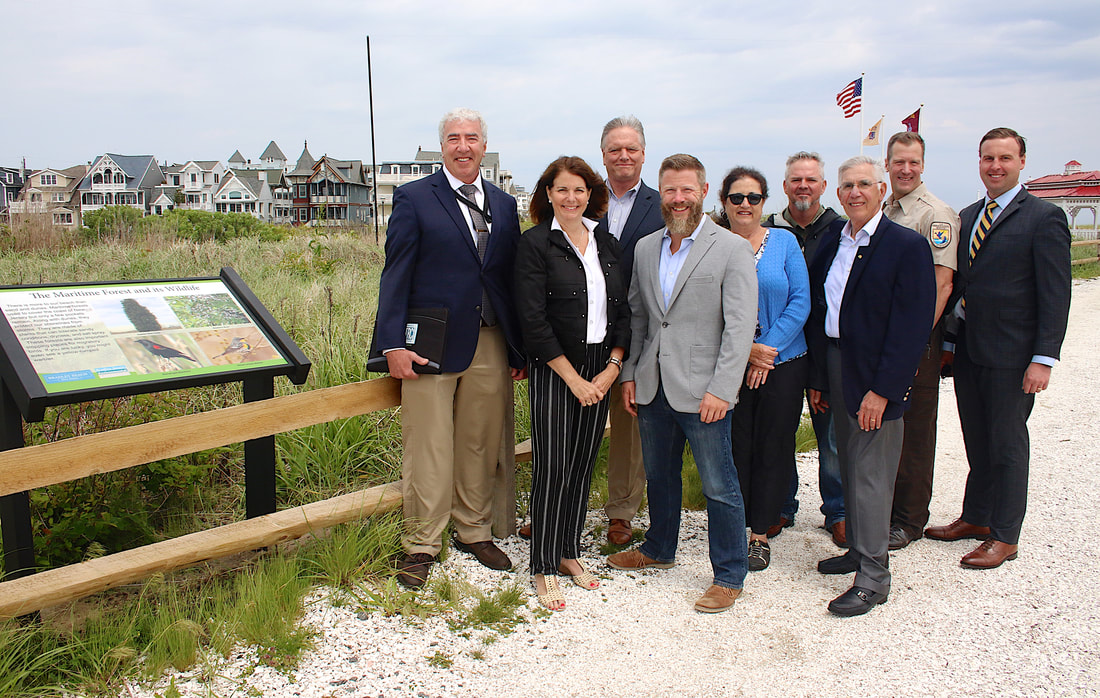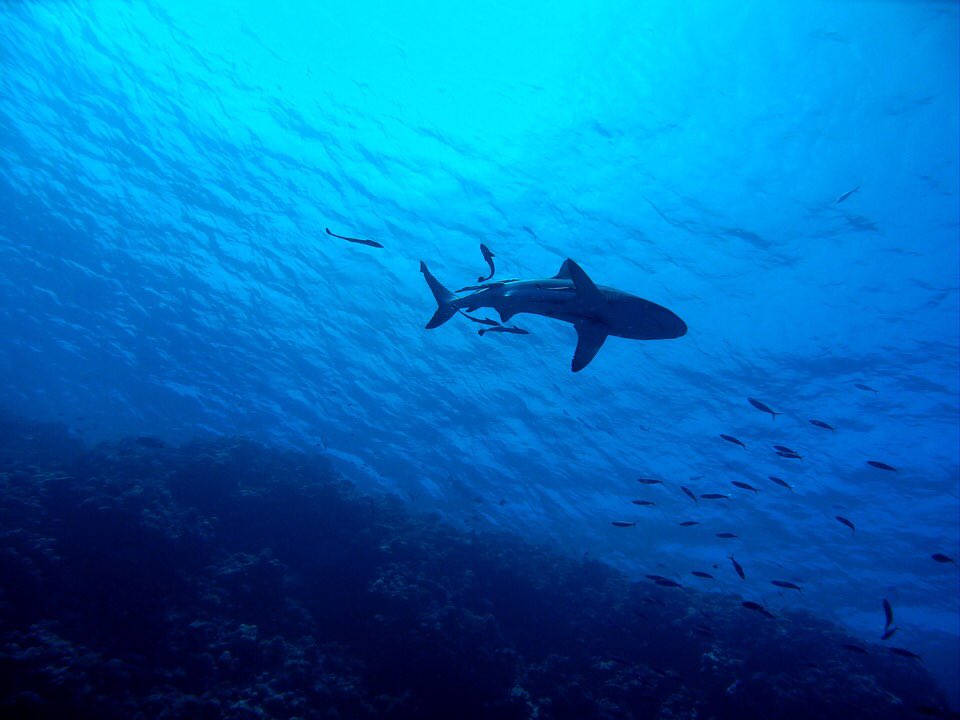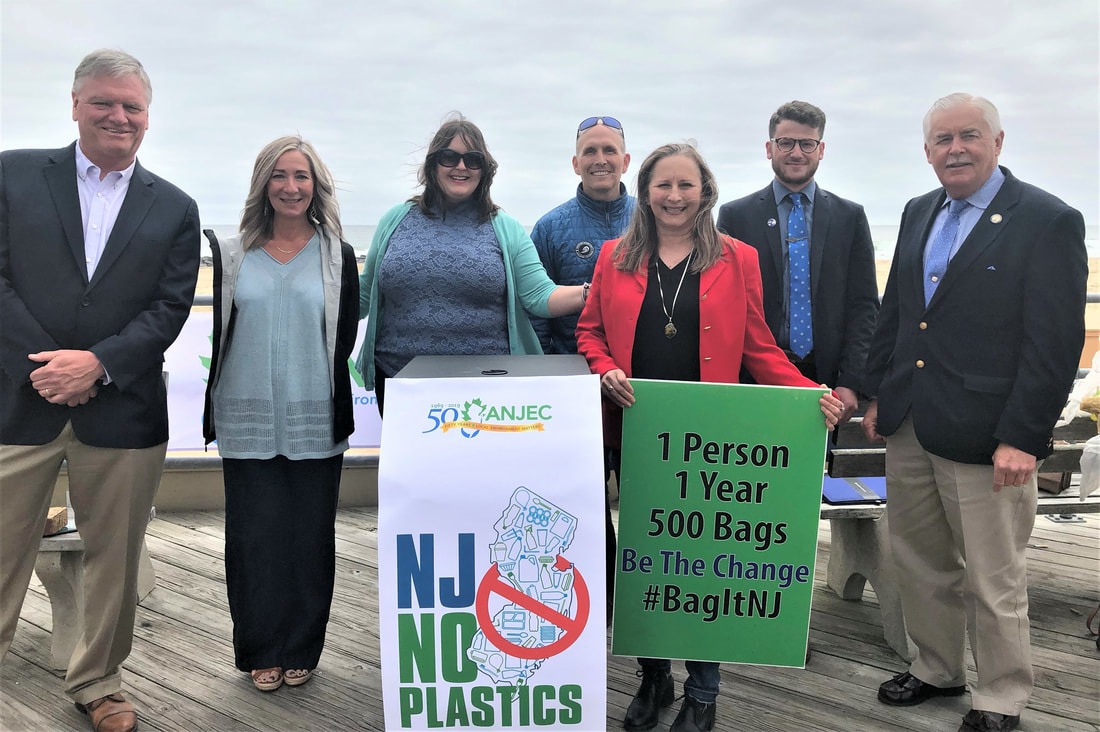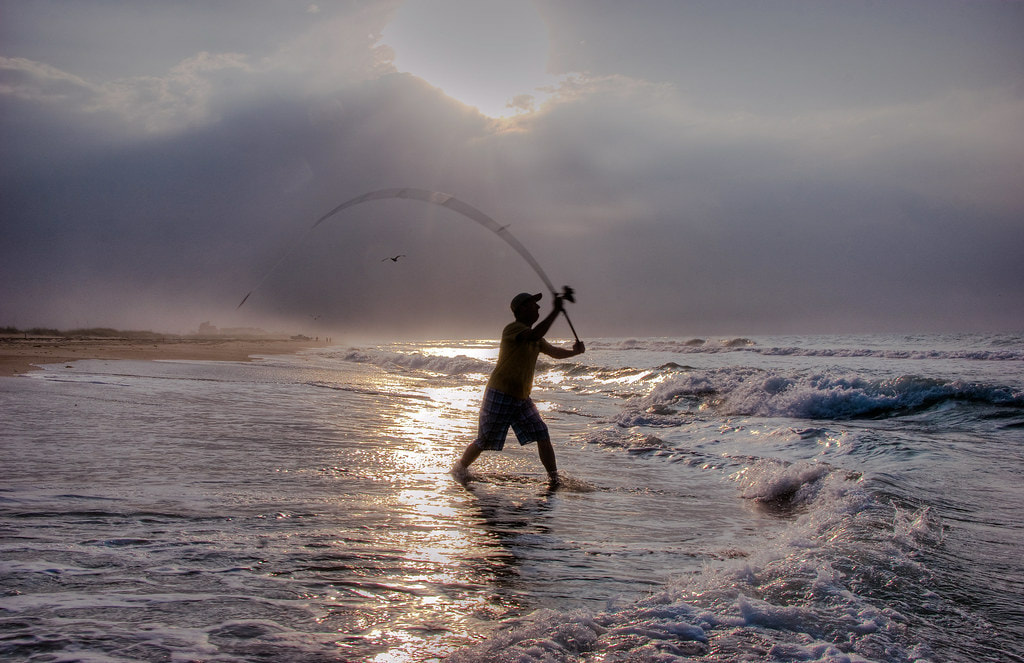|
On Thursday, May 23, the American Littoral Society, Bradley Beach Municipal officials and project partners came together near the north end of the Bradley Beach boardwalk for the official unveiling of the town’s restored maritime forest.
The maritime forest is a model for other coastal communities and provides sustainable protection for New Jersey’s coastal lakes, many of which are in jeopardy. The plants help protect against storms, reduce sand and debris going into Fletcher Lake, provide habitat, and beautify the area. "With our famous dunes, our soon to be natural shoreline at Sylvan Park and our Maritime Forest, Bradley Beach is blessed to work with individuals and organizations that are committed to forward thinking and have real compassion for the coast,” said Bradley Beach Mayor Gary Engelstad. “Much of this progress has been possible thanks to the help of the American Littoral Society." A bill banning the ownership and sale of shark fins is once again scheduled for a vote in the NJ Assembly. The American Littoral Society asks members to contact their legislators and the Speaker of the Assembly to urge passage of this important bill.
A4845/S2905 would ban the sale and trade of certain shark fins, which will reduce the chance that foreign shark fins end up in our state. While shark finning itself is banned by federal law, the states must ban the sale and possession of these fins to further protect sharks, which are a vital component of our ocean ecosystem. The shark fin bill passed the NJ Senate in March and has been awaiting action in the Assembly. "The Littoral Society and numerous other organizations are deeply concerned with the decline of shark populations, which are crucial to the health of the ocean," said Tim Dillingham, Executive Director of the American Littoral Society. "We have been working for years to ban the possession, sale, trade or distribution of shark fins and we hope that New Jersey is ready to join other states that have already taken action to end the terrible practice of shark fining." We ask Littoral Society members and supporters to contact by phone and email both Assembly Speaker Craig Coughlin and their district Assembly representative to urge passage of this bill. Point Pleasant, NJ - On Saturday, May 11 the American Littoral Society, project partners and a host of volunteers executed the next stage of a unique project to restore an eroded shoreline at Slade Dale Sanctuary in Point Pleasant, NJ.
A first-of-its-kind project for New Jersey, the restoration work involved using recycled Christmas trees placed in branchbox breakwaters and tree vanes to help re-establish the shoreline of a salt marsh in the sanctuary which has eroded approximately 300 feet over the past century. "We're excited to be taking the next step in our work in this area," said Capt. Al Modjeski, Habitat Restoration Director for the Littoral Society. "This is a great opportunity to show how living shorelines can provide a low-cost, natural solution to a long-term problem." Pictured, from left: Bradley Beach Mayor Gary Engelstad; Helen Henderson, American Littoral Society; Jennifer M. Coffey, ANJEC Executive Director; Don Weber, Surfrider; Noemi de la Puente, NJ Environmental Lobby; Zack Karvelas, Clean Ocean Action; and NJ NJ Dist. 11 Assemblyman Eric Houghtaling The American Littoral Society and The Association of NJ Environmental Commissions (ANJEC) today joined state and municipal leaders from across New Jersey in celebration of the many local actions that have been taken to combat the rising tide of plastic pollution.
“The American Littoral Society is especially grateful to the more than 20 municipalities that have adopted ordinances banning the intentional release of balloons," said Helen Henderson, Ocean Program Manager for the Littoral Society. "Soft plastics, like balloons, are the type of pollution most likely to cause death in birds and turtles who ingest them, and animals can also become entangled in the attached balloon ribbons.” Balloons are a form of plastic pollution that is especially harmful to marine life. Sea turtles and birds often mistake balloons as food and animals can also become entangled in the attached ribbons. Balloons are high on the list of items collected at beach cleanups. Trenton, NJ - Today, New Jersey Governor Phil Murphy signed a bill protecting the public's right to access the beaches and waterfronts in the state.
The bill enshrines into state law the public trust doctrine, which is a principle that establishes that the State's tidal waters and adjacent shorelines belong to the public to be used for navigation, commerce, and recreation, including bathing, swimming, and fishing. "New Jersey's shoreline and coastal communities are some of our state's greatest treasures," said Gov. Murphy. "By strengthening the public's right to access our beaches, we are ensuring that all New Jersey residents and visitors can enjoy our beautiful shore this summer and for generations to come." |
Archives
July 2024
Categories
All
|





